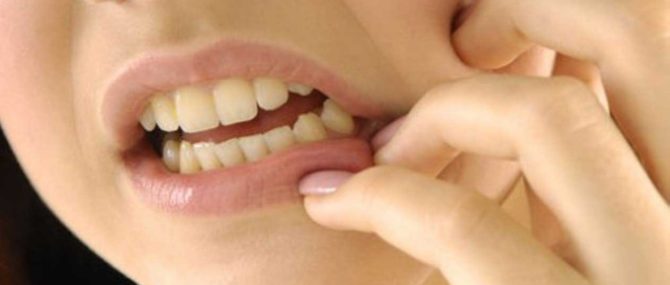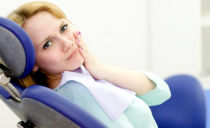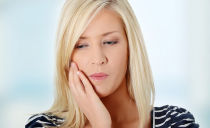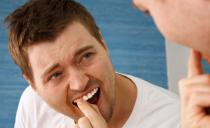Teeth and gums itch: possible reasons for what to do
Because of what there is a sensation of toothache, everyone understands, since sooner or later everyone faces dental diseases. But that's why an adult's teeth itch, especially with a cold, only a few know. Many do not pay attention to this symptom, although the causes of its manifestation can be no less serious and dangerous to health.
Content
Adult gums itch: reasons
Everyone knows why itching occurs in the gums of a child - such a symptom accompanies the eruption of incisors, fangs and molars. In adults, itching in the gums and inside the teeth occurs for completely different reasons.
| Causes of itching in the gums | Probable diagnoses | Associated symptoms |
|---|---|---|
| Noncommunicable dental diseases | Periodontitis | The mobility of dental units, leading to their loss, exposure of the tooth necks, suppuration. |
| Infectious Dental Diseases | Gingivitis | Bleeding, constant redness and swelling of the gums, increased sensitivity of enamel, halitosis. |
| Fungal infection of the oral mucosa | Candidiasis | Ulcers and cheesy plaque on the mucous membrane of the oral cavity, burning, sour smell from the mouth. |
| Bacterial or viral damage to the oral mucosa | Stomatitis | Rash and ulcers on the oral mucosa, accumulation of plaque, fever. |
| Other infectious diseases | SARS, influenza | Itching in the gums is a consequence of their swelling, accompanied by a runny nose, fever, sore throat. |
| Allergic reactions | Allergy | May be accompanied by allergic rhinitis, rash. A person may feel a general malaise. |
| Smoking | Gingivitis | Smokers are at risk for developing gingivitis. In smokers, against the background of gum disease, hyperkeratosis and villous glossitis may develop, accompanied by a blackening of the filiform papillae of the tongue. There is a rapid darkening of the enamel, pronounced halitosis. |
| Neurological disorders | Bruxism | Teeth grinding at night, enamel cleansing. |
Gum itch
Itching in the teeth can be felt after prosthetics. If the prosthesis is inconvenient, it can injure the mucous membrane of the oral cavity and provoke itchy sensations. In addition, microtrauma in the mouth can occur during chewing of coarse food and when using a very coarse toothbrush.
On the edges of the lower and upper jaw, the gums can itch when teething wisdom - the only molars that grow in adulthood. The gradual eruption of the dental crown provokes inflammation of the gum tissue.
Why does a tooth itch under a seal
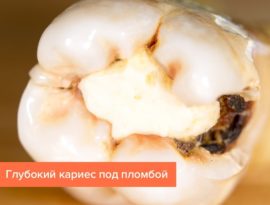 The feeling that the teeth itch may occur after filling. Sometimes filling material causes an intolerance reaction, which causes an allergy to develop. If the filling material irritates the internal tissues of the molar, a repeat visit to the dentist may be necessary to replace the fillings.
The feeling that the teeth itch may occur after filling. Sometimes filling material causes an intolerance reaction, which causes an allergy to develop. If the filling material irritates the internal tissues of the molar, a repeat visit to the dentist may be necessary to replace the fillings.
In case of poor-quality dental services, not all dental tissue affected by caries can be eliminated before filling. Subsequently, it begins to decompose and becomes the focus of infection, causing discomfort that manifests itself from the inside of the tooth. Such seals need to be replaced. If the microbes manage to penetrate the pulp, depulpation may be necessary.
Itching gums after tooth extraction
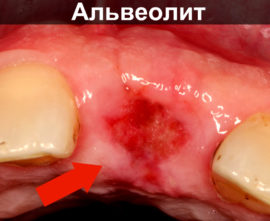 Itching of the gums in an adult patient that occurs within a few days after tooth extraction can indicate either neurological abnormalities or inflammation of the dimple (alveolitis). The immediate causes of this discomfort are most often:
Itching of the gums in an adult patient that occurs within a few days after tooth extraction can indicate either neurological abnormalities or inflammation of the dimple (alveolitis). The immediate causes of this discomfort are most often:
- Complex removal.
- Nerve Injury
- Incomplete extraction of fragments of a tooth root from a hole.
- Infection of the well during surgery or premature loss of a blood clot.
Why teeth itch during pregnancy
During the period of gestation, the teeth may itch for the same reasons as at other times. But this symptom can bother expectant mothers more often than usual, since their body is subjected to a greater load:
- In pregnant women, immunity decreases, especially with malnutrition, improper daily routine and severe toxicosis.
- Hormonal bursts can disrupt normal processes of life, due to which old ones worsen or new chronic diseases appear.
- Pregnant women often ignore preventive examinations by dentists, and at this time various diseases of the oral cavity can develop.
If a pregnant woman itches a tooth inside, then she develops gingivitis. Pregnancy not only increases the predisposition to this disease, but also causes difficulties in treatment.
During the period of bearing a child, many medications are prohibited, therefore it is extremely dangerous to self-medicate gingivitis - you need to consult a dentist and a gynecologist, whose future mother is registered.
Itching teeth in an adult - what to do
Any unpleasant sensation in the mouth may indicate the development of serious diseases. Therefore, if dental itching occurs, you need to examine the oral cavity in front of the mirror for a rash and other pathological changes. Turning to the doctor, you need to tell him about all the detected symptoms.
The tactics for treating itchy gums depends on the diagnosis. What can be done:
- In inflammatory infectious processes, antibacterial or antifungal agents are needed for local treatment of the oral mucosa. With a complex course of infection, antibiotic intake is necessary.
- Inflammatory processes of infectious and non-infectious origin are treated by rinsing the mouth with decoctions of herbs, solutions of chlorhexidine, potassium permanganate or soda.
- If the gums in an adult patient itch on the background of a cold, the use of antiviral and anti-inflammatory drugs, means to eliminate fever and other symptoms are indicated.
- Neurological pathology that occurs after the removal of the dental unit must be treated with special drugs that restore the functionality of the dental nerve.
- Allergic reactions are eliminated by antihistamines. In this case, it is necessary to identify the allergen and exclude contact with it.
During treatment, in no case should you scratch your gums so as not to bring a secondary infection into them.
Preventive actions
Every adult should not only know why gums can itch, but also be able to prevent diseases that provoke this symptom:
- Regular oral hygiene is extremely important. The usual daily two-time brushing can prevent many dental diseases.
- When compiling a diet, we must not forget about those foods that contribute to normal blood circulation in the oral cavity (carrots, apples, cabbage) and saturate soft tissues with microelements and vitamins (dairy products, seafood, citrus fruits).
- It is more useful to give preference to natural sweets - fruits, berries. Chocolate and other confectionery sweets are harmful to enamel.
- Rinsing your mouth after eating is useful not only for diseases, but also for their prevention. To rinse your mouth, you can use chamomile or oak decoction.
- Timely identification of dental problems helps to avoid removal, and sometimes filling, of dental units. If the doctor notices tartar during examination, he removes it, which facilitates the elimination of plaque, which includes pathogenic microbes.
Itching in any part of the lower or upper jaw, including in the area of the extracted or sealed tooth, can be a sign of inflammation, allergy, nerve damage, or a catarrhal disease. All these pathologies need to be diagnosed and treated in a timely manner. Therefore, when gums itch in adults, they do not have to do anything on their own - you need to contact dentistry.

